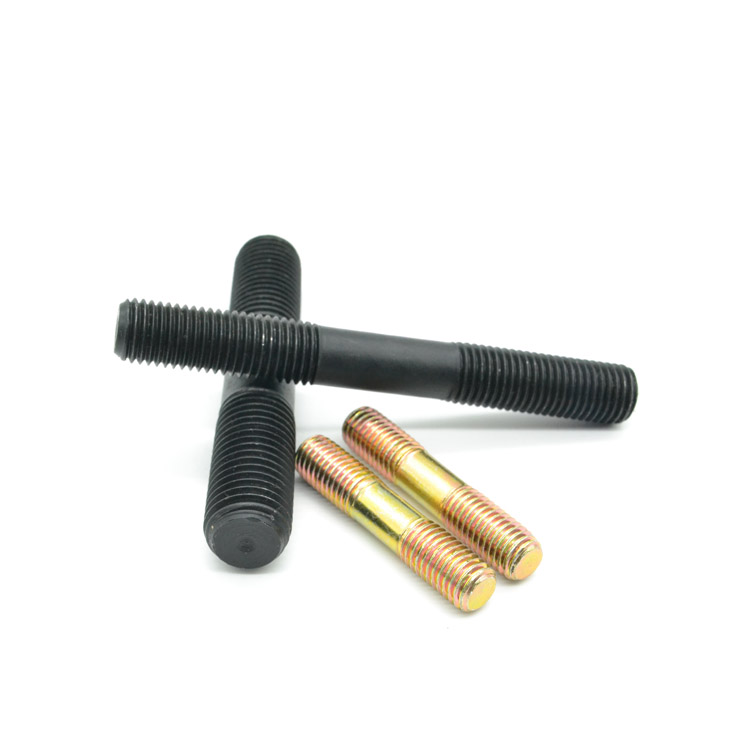Manufacturers of Allen Wrench Bolts and Their Impact on Hardware Solutions
Sep . 28, 2024 03:13 Back to list
Manufacturers of Allen Wrench Bolts and Their Impact on Hardware Solutions
The Manufacturing of Allen Wrench Bolts A Comprehensive Overview
In the realm of fasteners, Allen wrench bolts, also known as hex socket screws, have gained significant popularity due to their unique design and ease of use. These bolts utilize a hexagonal socket that can be easily manipulated with an Allen wrench, making them a preferred choice in various industries, from furniture assembly to automotive manufacturing. This article delves into the production processes, quality control measures, and industry trends surrounding Allen wrench bolts.
Manufacturing Process
The production of Allen wrench bolts involves several key steps, beginning with the selection of raw materials. High-quality carbon steel or stainless steel is often chosen for its durability and resistance to corrosion. After procuring the materials, manufacturers cut them into specific lengths and shapes, depending on the desired final product.
The next step in the manufacturing process is the forging or machining of these raw materials. Forging is advantageous for mass production as it increases the strength of the metal through deformation. However, machining offers greater precision and is typically employed for specialty bolts with unique dimensions or features.
Once the bolts are shaped, the hexagonal socket is created through a precise machining process. This step ensures that the Allen wrench can fit snugly into the socket, thereby providing efficient torque when tightening or loosening the bolts. Following this, threads are formed, typically through a rolling process that enhances the integrity of the thread profile.
Quality Control
allen wrench bolts factories

Quality control is a crucial aspect of Allen wrench bolt production. Manufacturers implement various tests to ensure their products meet the required standards for strength and durability. These tests may include tensile strength tests, dimensional inspections, and corrosion resistance tests. By adhering to international standards such as ISO and ASTM, factories can assure clients of the reliability of their fasteners.
Additionally, many factories employ advanced technologies like computer numerical control (CNC) machines to enhance precision in manufacturing. This automation not only increases efficiency but also minimizes human error, leading to a higher quality product.
Industry Trends
The market for Allen wrench bolts has been evolving, influenced by trends in manufacturing and consumer preferences. One significant trend is the shift towards sustainable manufacturing practices. Many factories are now adopting eco-friendly processes and materials in response to growing environmental concerns. This includes utilizing recyclable materials and reducing waste during production.
Furthermore, the rise of online retail has enabled easier access to customized Allen wrench bolts, catering to specific customer needs. E-commerce platforms allow small manufacturers to reach broader markets, fostering competition and innovation in the sector.
Conclusion
The factories dedicated to the production of Allen wrench bolts play a vital role in various industries, providing essential components for countless applications. Through meticulous manufacturing processes and stringent quality control measures, these factories ensure that their products meet both performance and durability standards. As the industry continues to adapt to trends and advancements in technology, the future of Allen wrench bolt production looks promising, poised for growth and innovation in a global market.
Latest news
-
High-Quality Panel Stud Bolt Reliable Panel Stud Bolt Factory & Suppliers
NewsJul.08,2025
-
High-Precision Fine Thread Locknuts Manufacturer & Supplier Custom Solutions
NewsJul.08,2025
-
PH Imperial Stud Bolt – High Strength Fasteners from Leading Supplier & Factory
NewsJul.07,2025
-
High-Quality Allen Wrench Bolts Leading Factory, Company & Suppliers
NewsJul.07,2025
-
Wholesale Ball Stud Bolt - High Quality Supplier & Factory Price Reliable Wholesale Ball Stud Bolt Company
NewsJul.06,2025
-
High-Strength Alloy Bolts Manufacturer & Supplier Quality Alloy Fasteners Factory
NewsJul.06,2025
